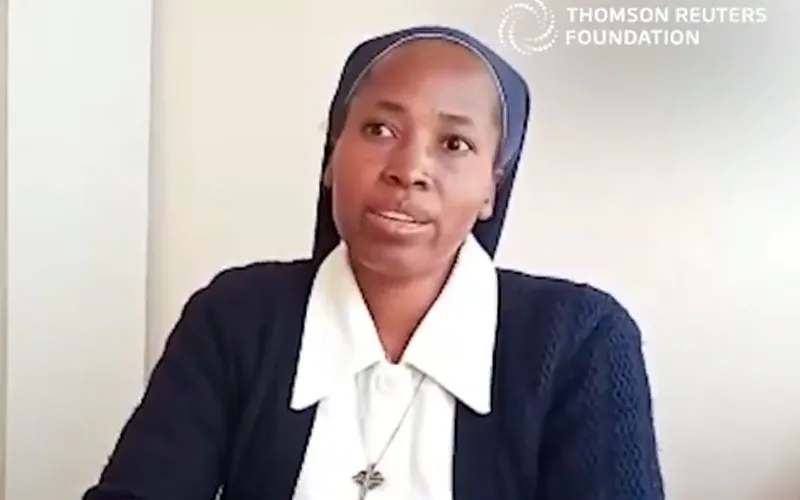Kolwezi has rich mineral deposits of cobalt copper, gold, uranium, and platinum among others, which provide a means of livelihood for many locals living in this area.
Living conditions of artisanal miners in the largest cobalt mining area in the country are among the worst in the world, Bon Pasteur leadership has published on the entity’s website.
“Women, girls and an estimated 40,000 children are forced to work in artisanal mines, in unsafe and unhealthy conditions, using rudimental tools and without any protective equipment. They work for less than a dollar a day, not enough to survive, while being denied their rights to protection, healthcare and education,” the organization has reported.
Those who work as laborers in this place risk their lives every day, Sr. Wainoi told ACI Africa February 26.
She explained, “It isn’t an easy job as some people dig with their bare hands to get the minerals. Sometimes the excavations go so deep and collapse on them.”
(Story continues below)
Many families in Kolwezi are headed by women who lost their husbands in the dangerous mining activities, the member of the Sisters of the Good Shepherd says.
To provide for their families, these women who do not have “the muscles” to dig up the minerals often engage in prostitution, she says.
Sr. Wainoi who succeeded Sr. Catherine Mutindi Kivutui, in running the award-winning charity organization shares the challenge of advising families to abandon mining for lack of a better option for their survival.
“You think of telling them to stop going to dig up the minerals but then ask yourself, then what. Most times, the people have no option to survive other than going to mine minerals,” she says, adding that the region is riddled with domestic violence and child labor.
Some of the intervention projects at Bon Pasteur include informal schools where victims of child labor undergo rehabilitation before they are enrolled in regular schools and a vocational training program that equips survivors of slavery with skills for an alternative way of living.
“Children of different ages come to our schools. Some come after years of slavery without having stepped into school. We stay with them for a while taking them through a rehabilitation programme before they are enrolled into regular schools,” Sr. Wainoi told ACI Africa February 26.
Some of the organization’s success stories are those of 81 percent of children enrolled in education projects who quit the mines and of 193 children who have been successfully reintegrated into the formal school system.
Additionally, 450 girls at the organization have been trained to access decent jobs while some 300 women and girls have gained skills for alternative livelihood.
Despite all these achievements, Sr. Wainoi observes that there is still more that needs to be done in the country to stop child labor and modern slavery.
She says, “There is too much poverty and many women and children are exposed to harsh experiences in the mines every day. We try to be a voice to the voiceless but our work is just a drop in the ocean.”
She expressed optimism that with the Thomson Reuters award, more people would join hands to combat the vice that she said has for years, crippled the Central African country by keeping children away from school and leaving many widowed and orphaned when men die in mines.
Agnes Aineah is a Kenyan journalist with a background in digital and newspaper reporting. She holds a Master of Arts in Digital Journalism from the Aga Khan University, Graduate School of Media and Communications and a Bachelor's Degree in Linguistics, Media and Communications from Kenya's Moi University. Agnes currently serves as a journalist for ACI Africa.








